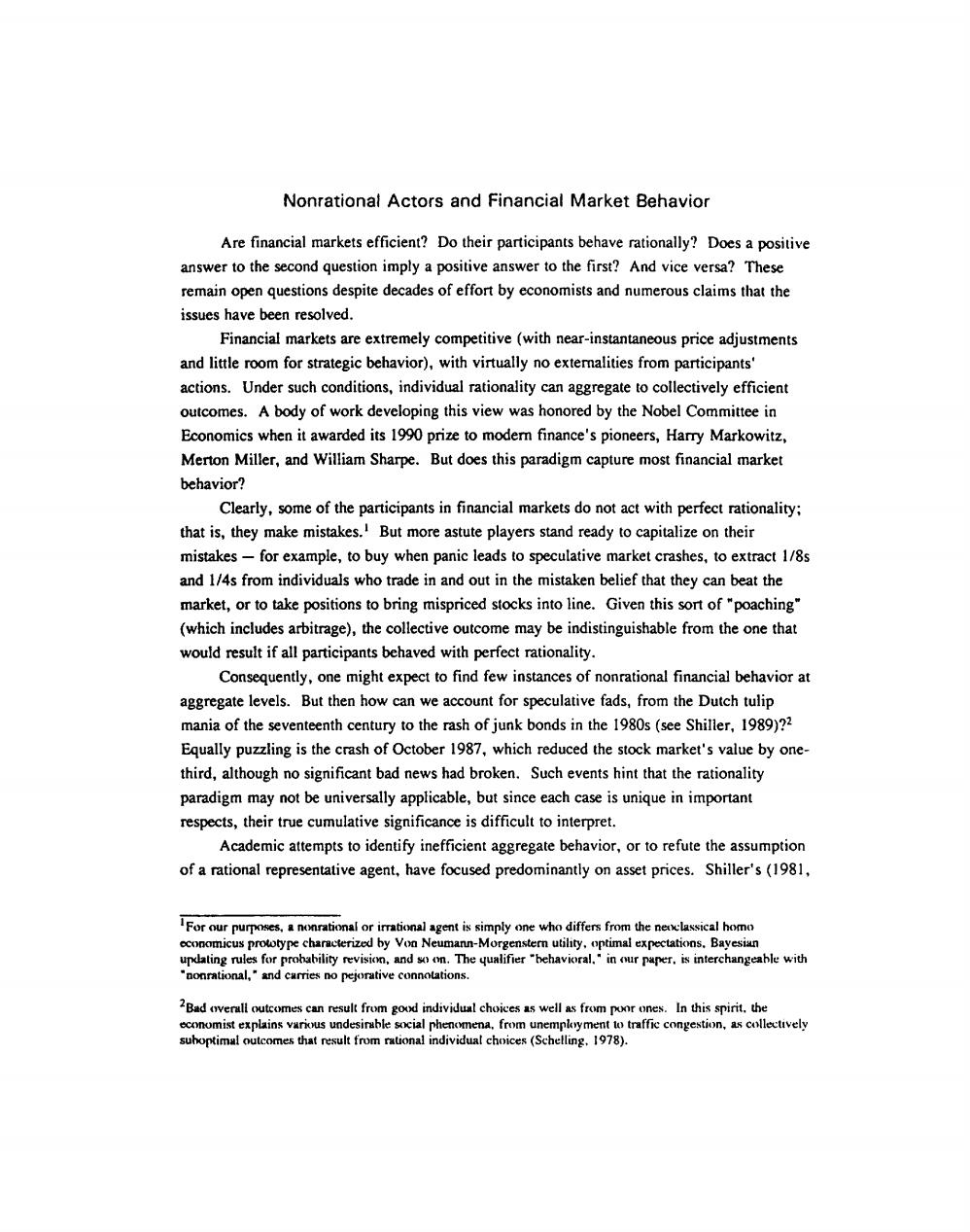正在加载图片...

Nonrational Actors and Financial Market Behavior Are financial markets efficient?Do their participants behave rationally?Does a positive answer to the second question imply a positive answer to the first?And vice versa?These remain open questions despite decades of effort by economists and numerous claims that the issues have been resolved. Financial markets are extremely competitive (with near-instantaneous price adjustments and little room for strategic behavior),with virtually no externalities from participants' actions.Under such conditions,individual rationality can aggregate to collectively efficient outcomes.A body of work developing this view was honored by the Nobel Committee in Economics when it awarded its 1990 prize to modem finance's pioneers,Harry Markowitz, Merton Miller,and William Sharpe.But does this paradigm capture most financial market behavior? Clearly,some of the participants in financial markets do not act with perfect rationality; that is,they make mistakes.But more astute players stand ready to capitalize on their mistakes-for example,to buy when panic leads to speculative market crashes,to extract 1/8s and 1/4s from individuals who trade in and out in the mistaken belief that they can beat the market,or to take positions to bring mispriced stocks into line.Given this sort of "poaching" (which includes arbitrage),the collective outcome may be indistinguishable from the one that would result if all participants behaved with perfect rationality. Consequently,one might expect to find few instances of nonrational financial behavior at aggregate levels.But then how can we account for speculative fads,from the Dutch tulip mania of the seventeenth century to the rash of junk bonds in the 1980s (see Shiller,1989)?2 Equally puzzling is the crash of October 1987,which reduced the stock market's value by one- third,although no significant bad news had broken.Such events hint that the rationality paradigm may not be universally applicable,but since each case is unique in important respects,their true cumulative significance is difficult to interpret. Academic attempts to identify inefficient aggregate behavior,or to refute the assumption of a rational representative agent,have focused predominantly on asset prices.Shiller's(1981, For our purposes.anonrational or irrational agent is simply one who differs from the neclassical homo cconomicus prototype characterized by Von Neumann-Morgenstern utility.optimal expectations.Bayesian updating rules for probability revision,and so on.The yualifier "behavioral."in our paper.is interchangeable with "nonrational,"and carries no pejorative connotations. 2Bad overall outcomes can result from good individual choices as well as from poor ones.In this spirit.the economist explains various undesirable social phenomena.from unemplyment to traffic congestion.as collectively suboptimal outcomes that result from rational individual choices(Schelling.1978)